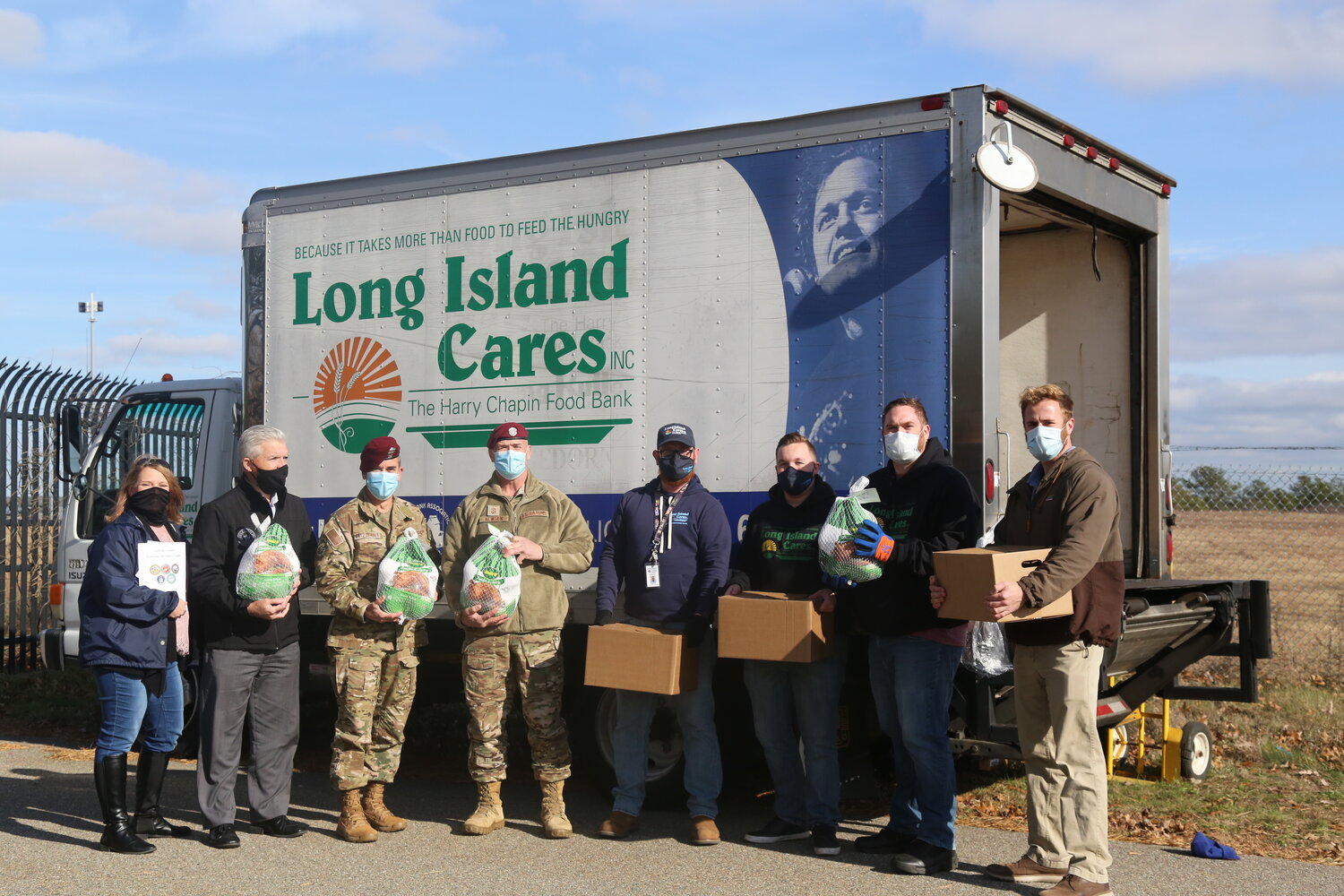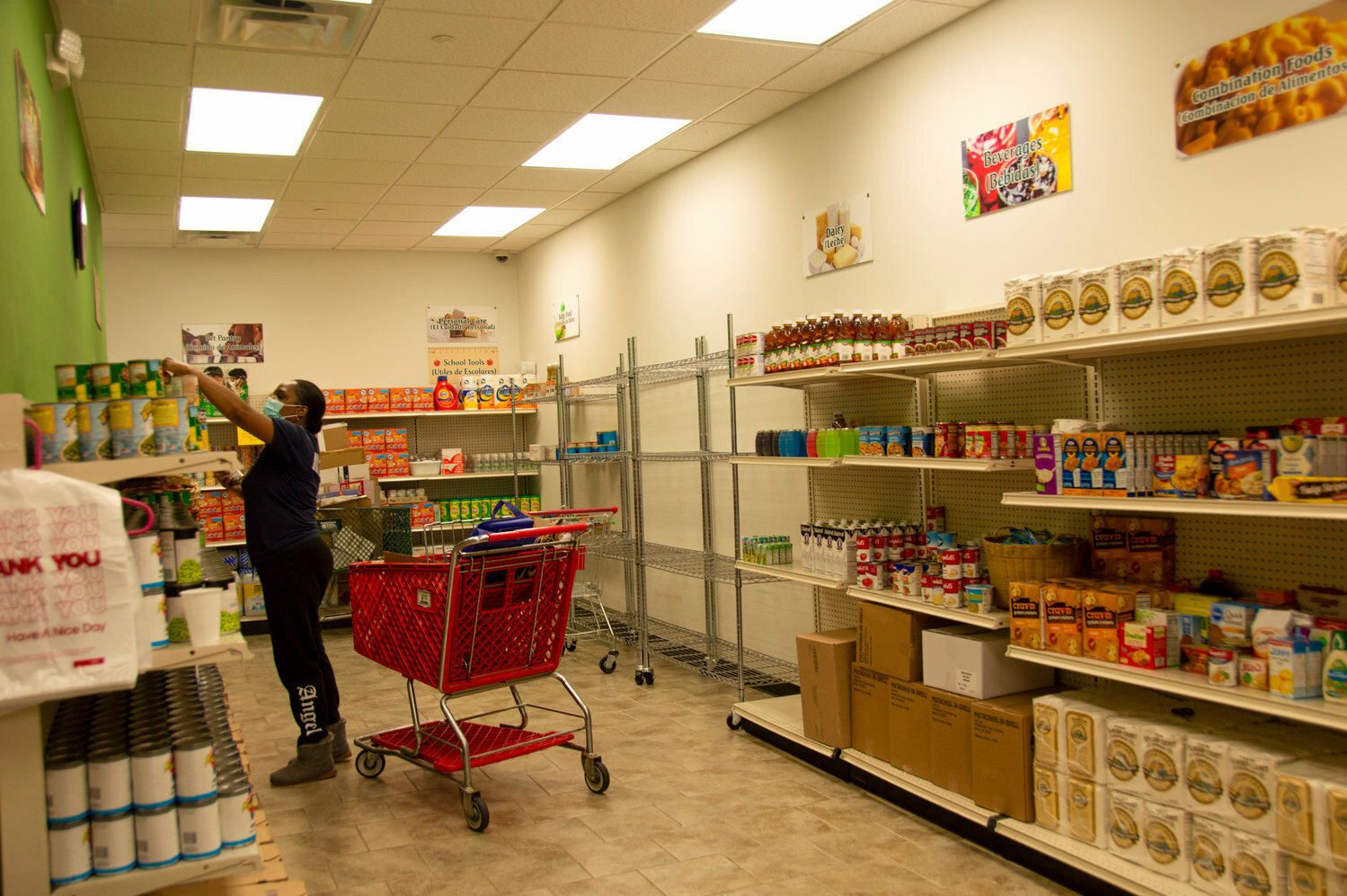Remembering Long Island Cares' swift response to the pandemic
The coronavirus pandemic had a significant impact on Long Island, isolating many residents, especially those already struggling with hunger. In response, Long Island Cares focused on ensuring the timely and safe distribution of food.
Founded by the late folk-rock performer Harry Chapin, a Huntington native and a Grammy Hall of Fame member, Long Island Cares acted swiftly as the pandemic spread, driven by its ethical responsibility to assist those in need. It received financial help from the federal government, enabling it to meet people’s needs through in-person visits or home delivery.
Recognizing the need to adapt to the circumstances, Long Island Cares established pop-up distribution centers instead of organizing large-scale food drives. These centers offered “Grab and Go” emergency food boxes, providing consistent access to nutritious meals while maintaining a connection with the community.
“We have an ethical responsibility to serve people,” Dr. Jessica Rosati, Long Island Cares’ chief program officer, said. “We were fortunate enough that the federal government made a significant amount of resources available to our industry. This assistance greatly aided us in meeting the needs of the individuals who were seeking our help.”
During the pandemic, the demand for assistance surged, with Long Island Cares experiencing a 60 percent increase in individuals accessing their emergency food programs. This rise is attributed to increased costs of goods, inflation, and the gradual relaxation of pandemic-related provisions.
Unfortunately, the organization still faces resource limitations due to reduced support, while the underlying issues persist.
The Freeport pantry, at 21 E. Sunrise Highway, has emerged as the busiest among Long Island Cares’ pantries, distributing a staggering 462,000 meals to the community in 2022 — more than double the number provided by the second-busiest location, in Lindenhurst. The substantial rise in demand was evident as local residents grapple with the challenges of affording nutritious food for their families amidst inflation.
Rosati, who oversees Freeport and four other satellite facilities, said the organization has seen a 90 percent surge in individuals requiring assistance to feed their families, driven by factors such as rising inflation, fluctuating employment, and the expiration of state waivers that had provided temporary relief for Long Island families.
“The pantry has become a staple in the Freeport community over the past plus decade,” Rosati said. “But what we’ve seen over the course of the last year, has been astonishing, or rather alarming is more the word to use.”
Rosati and her team believe that the closure of a food provider in the area last year contributed to the surge in demand at the Freeport pantry as individuals sought to supplement the loss.
A recent study released by the Suffolk County Legislature, titled “Still Struggling in Suburbia: The Unmet Challenges of Poverty in Suffolk County,” indicates that a significant portion of the population falls below the poverty level, defined as a family income of $55,000 or less on Long Island. Additionally, many residents face the risk of being unable to meet their food needs, as they must earn less than $30,000 to qualify for SNAP benefits (formerly known as food stamps).
“I don’t see it as a burden on our shoulders,” Rosati said. “Instead, I view it as an opportunity to overcome challenges, as nonprofits inevitably encounter challenges.”
To address the growing demand, Long Island Cares seeks additional funding, potentially through the New York state budget specifically targeting childhood food insecurity. However, concerns exist over potential cuts in programs like the Supplemental Nutrition Assistance Program (SNAP), which may further strain the food network.
Despite procurement challenges caused by disrupted supply chains and rising costs, Long Island Cares strives to ensure equitable food access for all. Nonprofits, including Long Island Cares, have experienced increased financial burdens as average donations decline and people have less disposable income to contribute.
Long Island Cares remains steadfast in its mission, advocating for Long Islanders in need. Its efforts focus on raising awareness and securing funding to address ongoing challenges and meet the community’s food needs.
“The average donation is going down, which reflects the fact that individuals are giving less due to their limited resources,” Rosati said. “It sets off a chain reaction where resources go away, costs rise, and donated funds lose their impact. This ripple effect creates obstacles for nonprofits to effectively fulfill their missions. But that doesn’t mean we won’t do our darndest to continue to advocate and bring awareness to the issues that that surround Long Islanders. By doing so, we aim to channel funding towards meeting the pressing needs of our community.”

 49.0°,
Fair
49.0°,
Fair 







